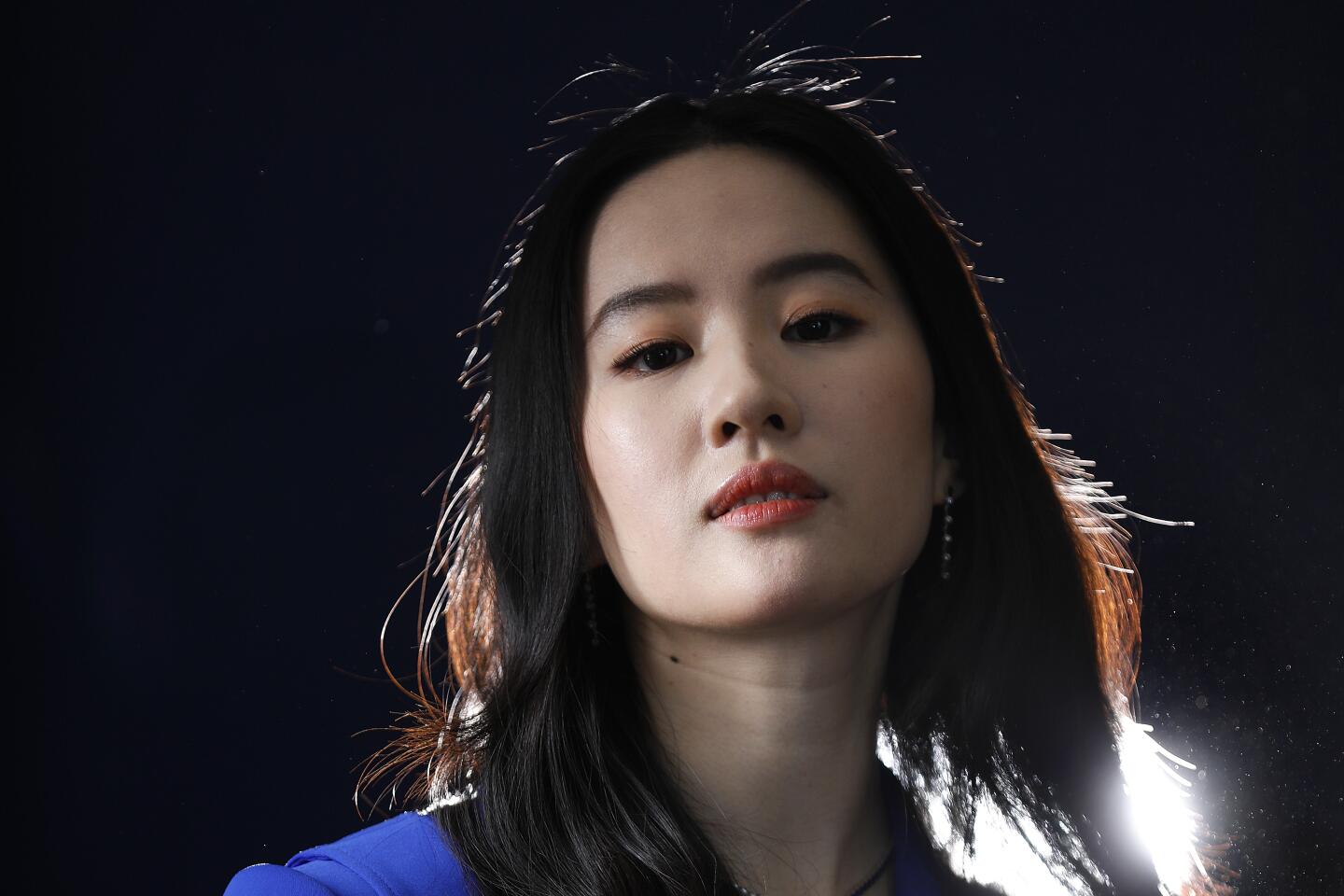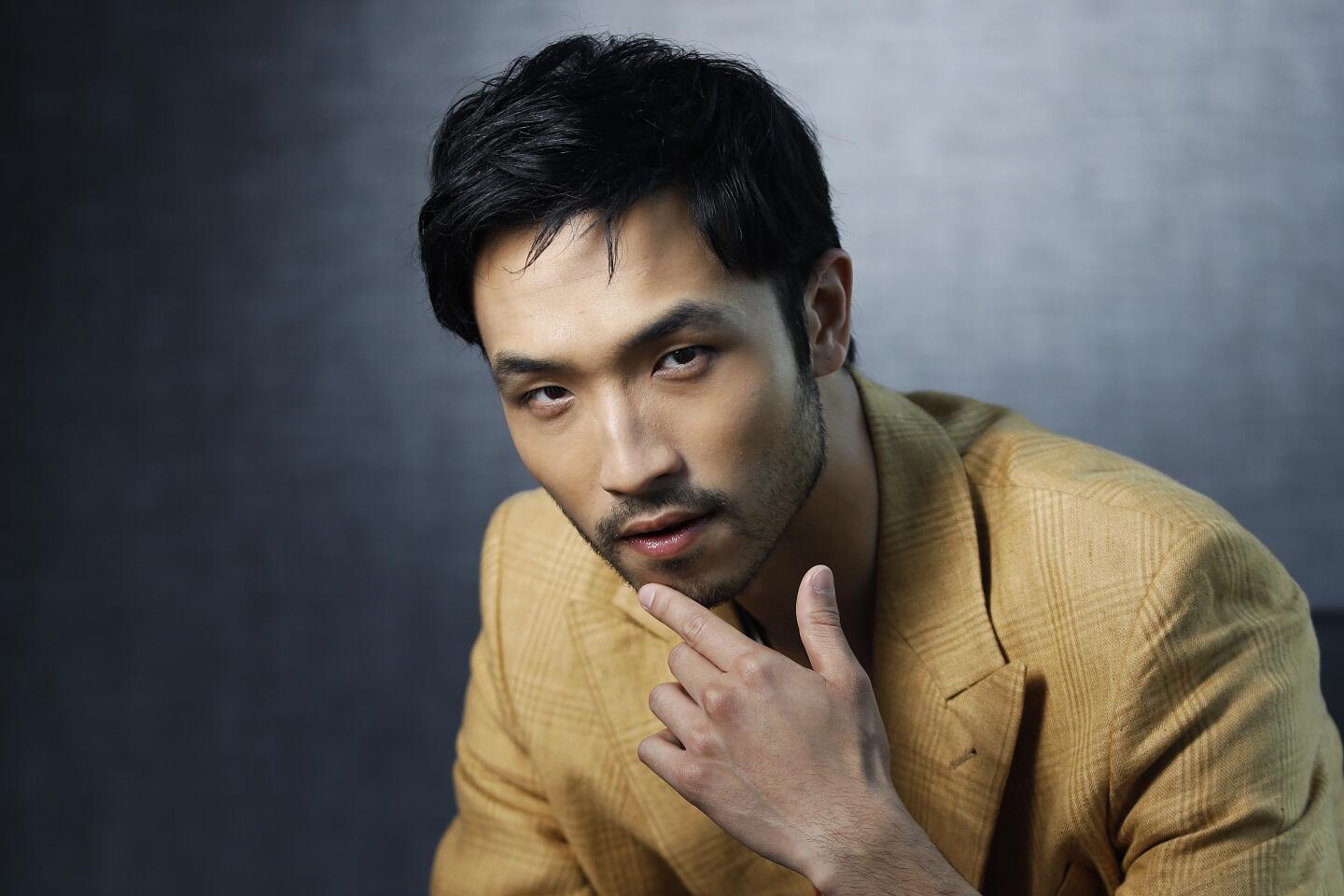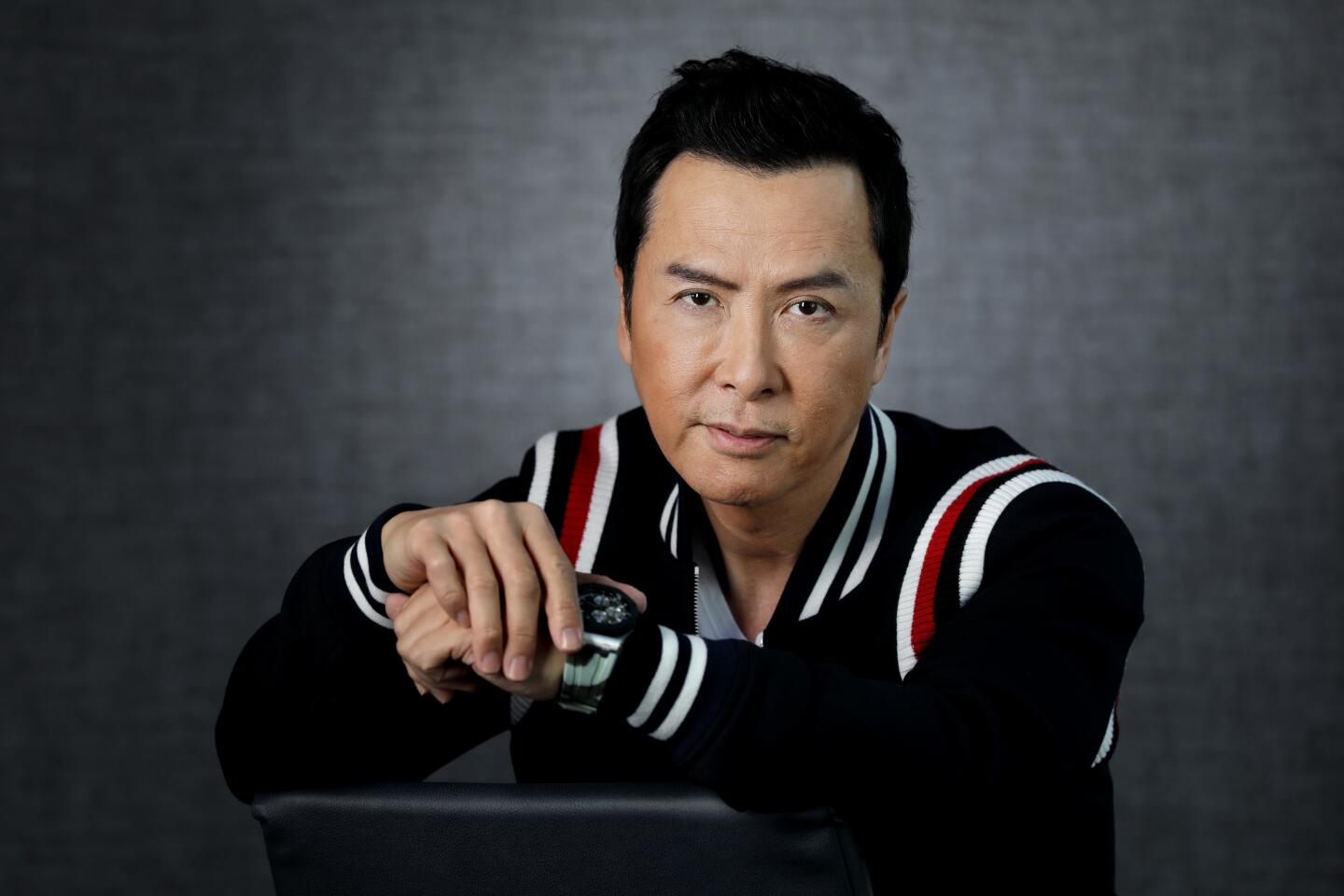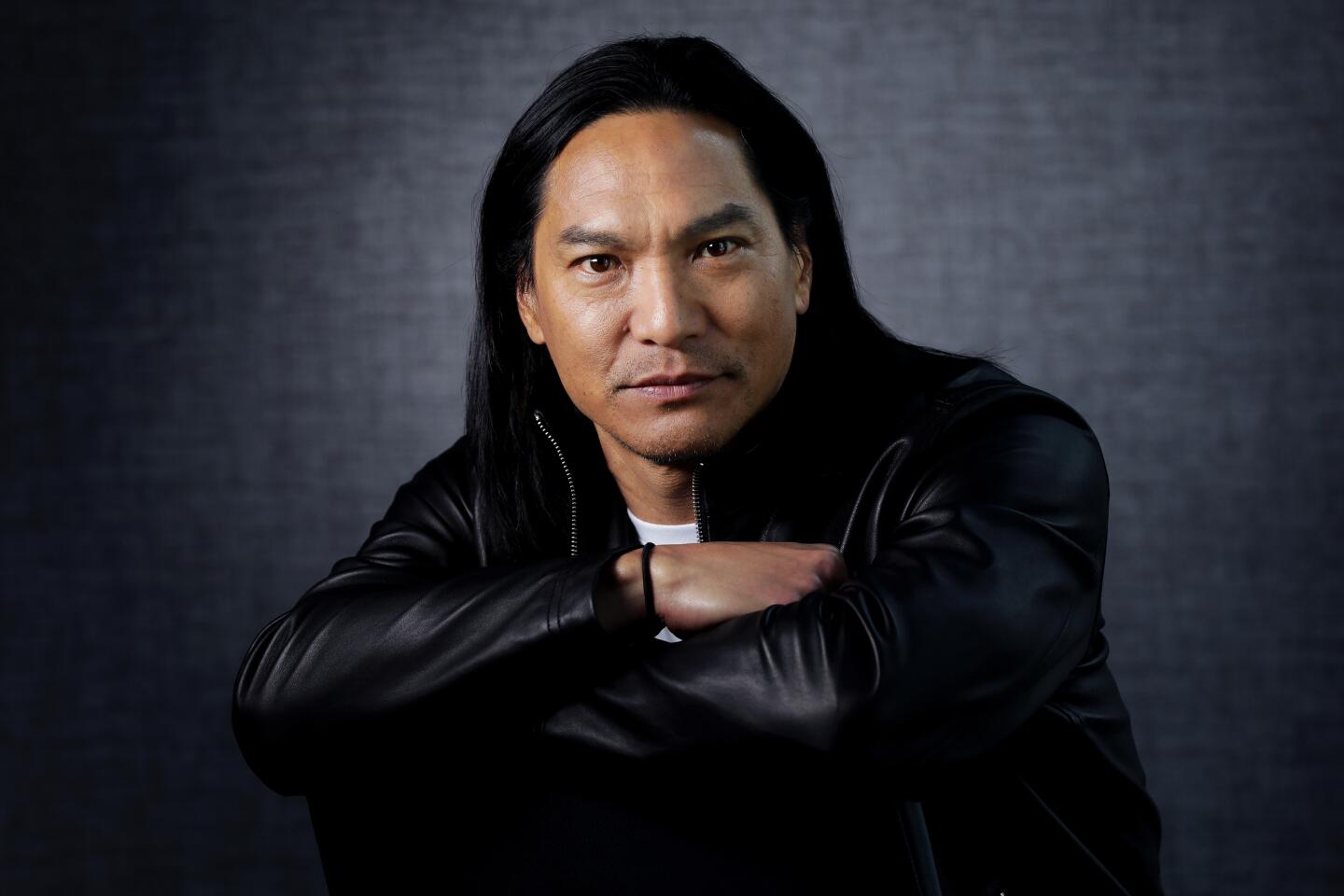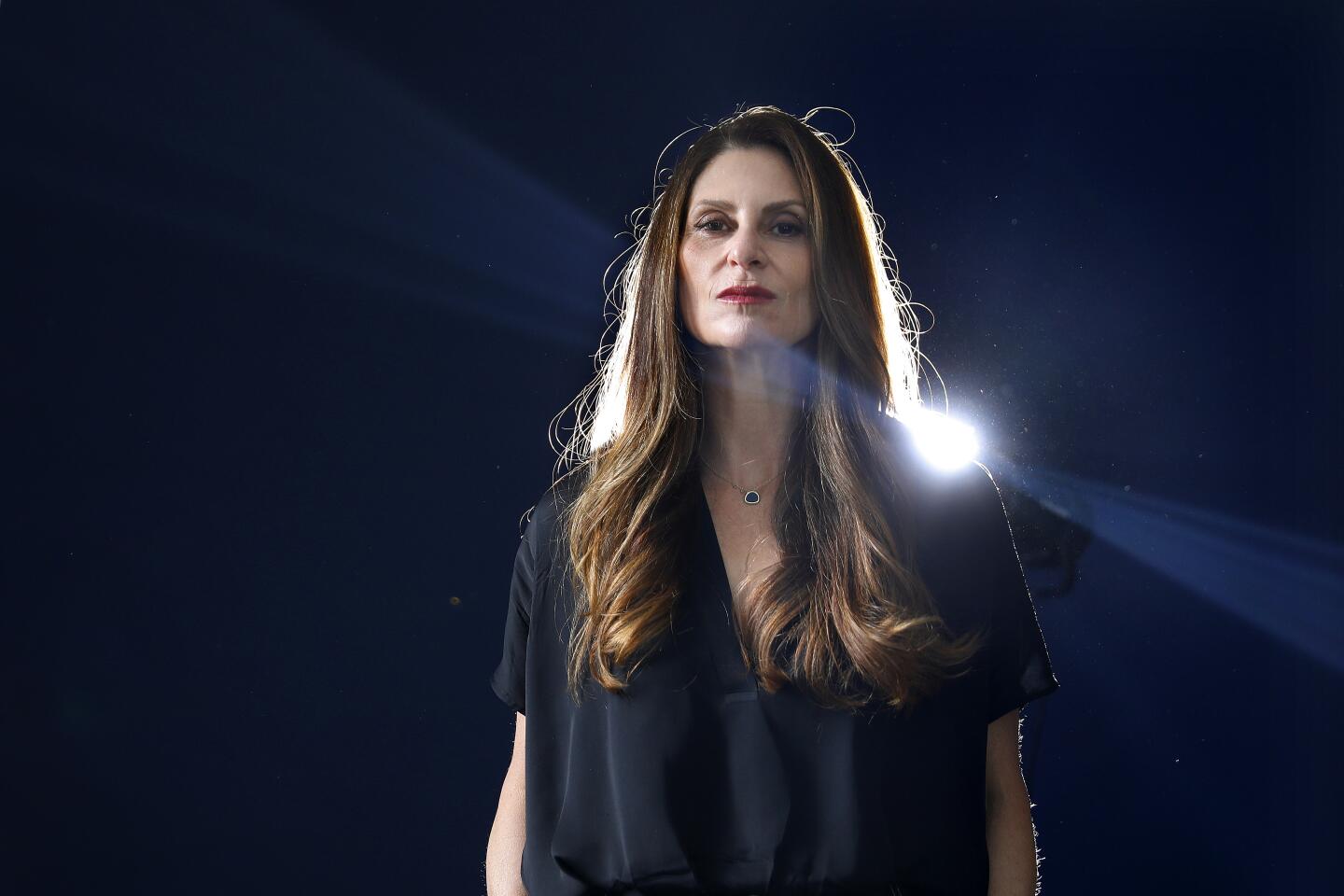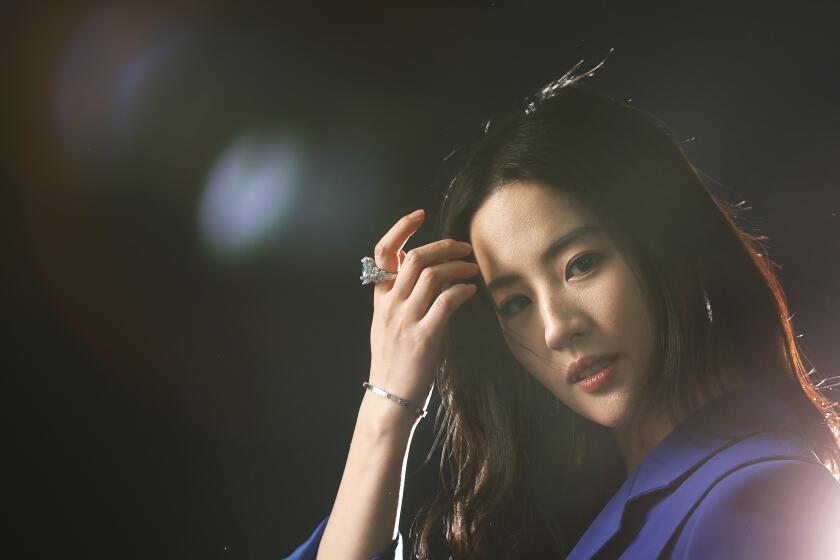How ‘Mulan’ turned coronavirus fears into a groundbreaking opportunity on Disney+
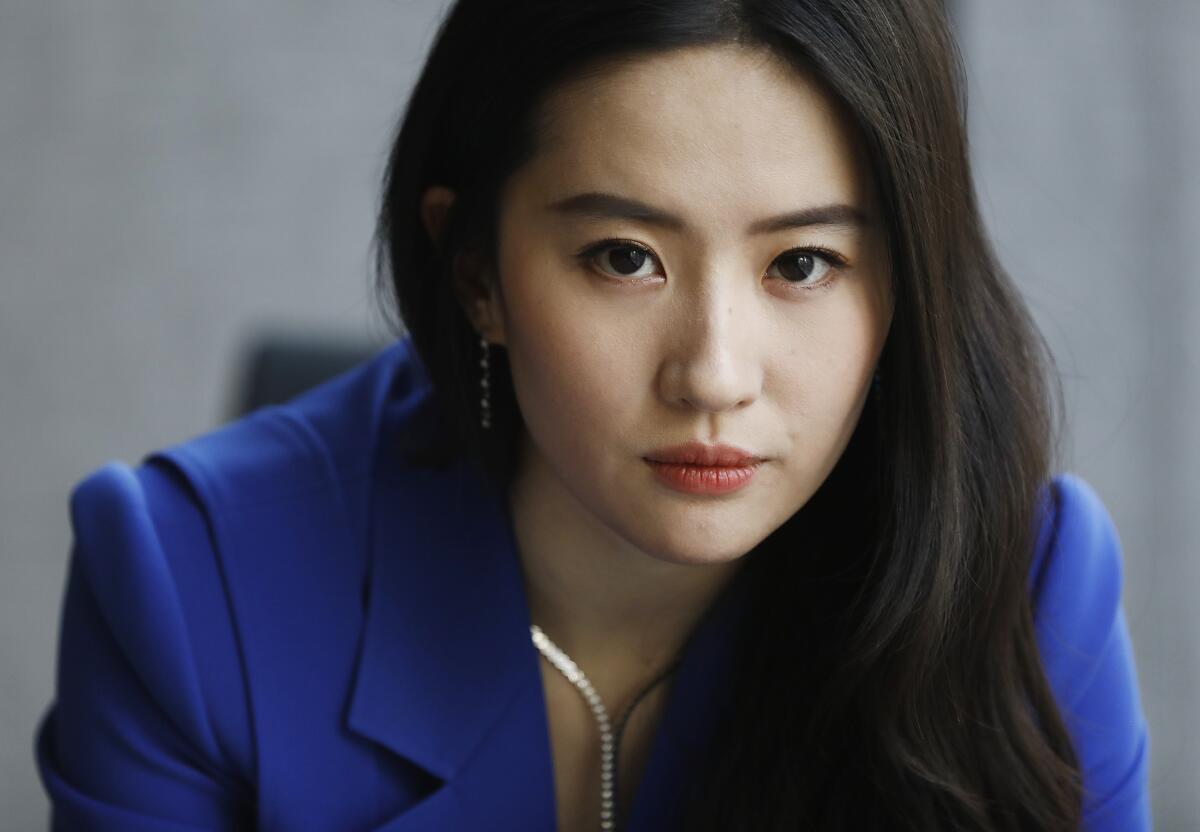
In March, Disney’s highly anticipated “Mulan” live-action remake, the first blockbuster-hopeful from the studio to boast an all-Asian cast, stood poised to follow in the footsteps of Disney’s prior successes in animated adaptations. Looking toward a projected $80-million domestic theatrical opening, the Niki Caro-directed epic was also set to have a massive premiere in China, the second-largest international market for the film industry and where the film‘s mythical tale originates.
Then the COVID-19 pandemic broke out and changed everything.
“It was a very strange, surreal and somewhat out of body experience to get to the precipice of release and then for everything to shut down,” Caro said by phone on Monday. “But I’m aware that it wasn’t just happening to me, it’s happened to everybody’s lives. My life just happens to revolve around a blockbuster movie.”
The film, which stars Yifei Liu as the titular heroine, was in the midst of its press run for the March 27 domestic opening and had even had a lavish Hollywood premiere before the pandemic forced theaters to close and studios to abandon their theatrical release plans. As the situation remained fluid throughout the summer, “Mulan” was redated multiple times for theaters before eventually landing a firm Sept. 4 release date as the first premium video on demand offering on the surging Disney+ streaming service.
“I’m really happy that the movie is going to be released in 2020,” Caro said. “It is unprecedented that a blockbuster summer movie gets delivered to you in your home, but this is an unprecedented time. I do believe it could be a special and memorable way to see a movie in a moment where we don’t have much new content. So a part of me is overjoyed that we get to deliver this on a huge global scale in 2020.”
Last month, Disney announced its plan to offer Disney+ subscribers early “premiere access” to “Mulan” for $29.99 in markets where the service is available, including the U.S., Canada, Australia, New Zealand and countries in Western Europe. “Simultaneously we will be releasing the film theatrically in certain markets where we currently have no announced launch plans for Disney+ and where theaters are open,” studio Chief Executive Bob Chapek said during an investment call. “We’re looking at ‘Mulan’ as a one-off as opposed to trying to say that there’s some new business windowing model that we’re looking at.”
Chapek noted that the motive behind launching the temporary premier access offering rather than releasing the film directly onto the platform was purely financial. (The studio announced this week that “Mulan” will become available to all subscribers, at no extra charge, on Dec. 4.)
“Disney tentpole blockbuster films can be fairly expensive to make and produce,” he said. “And rather than simply rolling it into a free offering, because [you] can test almost anything when you have your own platform, we thought we would give it a try ... to try to recapture some of that investment.”
Noting that Disney will be able to track not just the overall volume of purchases but also how many new subscribers sign up and purchase the film, Chapek added: “We’re going to have a chance to learn from this and to see whether that makes sense.”
While it’s only logical for the studio to seek a return on its more than $200-million investment, fan reaction to the new pay model was decidedly mixed if not outright hostile, with many decrying the price point, $10 above the $19.99 PVOD standard.
Plus, some observers pointed out, abandoning a global theatrical strategy seemed a missed opportunity to prove the financial potential of a film with an all-Asian cast. While “Crazy Rich Asians” ($239 million worldwide) and “Parasite” ($258 million worldwide) have recently scored at the box office, “Mulan” was set to scale new heights. Although the film will report box office from markets where it opens, including China, there’s a track record of $1-billion grossing Disney remakes including “Beauty and the Beast,” “Aladdin” and “The Lion King” that only happens with a worldwide release.
Beyond the business implications, some fans cited the decision to leave out the original 1998 animation’s songs and characters like Mushu and Li Shang as further disincentives.
“Those elements were not appropriate in this new live-action telling,” Caro explained back in March. “And in terms of characters, Li Shang for instance is now two characters. In the #MeToo era, having Mulan have a relationship with her commanding officer was never going to fly, and I would not sign up for that.”
Instead, Mulan’s commanding officer, Commander Tung, is played by Donnie Yen, while her potential love interest, Chen Honghui, is played by Yoson An.
“Rather than creating a shot-by-shot remake of the [animated film], the creators decided to go back to the original ballad [of Hua Mulan] and create a live-action adaptation [of that],” said An, also in March. (None of the actors interviewed for this story were made available for follow-up interviews.)
“There’s a few new characters to help bring forth themes that are more relevant to audiences today because 20 years have passed,” he continued. “And because of that, I was given free rein to collaborate with Niki and to come up with this Honghui character. Because fans are passionate about Mulan, there are going to be differences in opinions. It’s not a good thing and it’s not a bad thing. It just means that there’s passion there.”
“It wasn’t really, ‘We’ll start out with the animation and choose to leave things out,’ ” Caro said. “It was the opposite of that. When you have the opportunity to make something in live action, you have the opportunity to make it real. So the starting point was really, ‘What is that journey? What makes a young woman leave her home, travel across an entire continent, disguise herself as a man and go to war?’ And in order to tell that we went back to the DNA of the original ballad.
“It takes a strong strength of character to stay strong to the original vision,” she added. “But I was very lucky that the vision was shared by the studio. We really had to honor our commitment to this epic retelling and to the idea that if we did our jobs well enough, we could reinterpret this beloved story for a new audience and a new time. I liken it to a kind of coming of age for that audience whose childhoods Mulan defined. I hope that the live-action can sort of [represent] a coming of age into adulthood [for them].”
Perhaps the best answer to fan concerns will be the film itself, and if it took an extra five months to reach audiences, “Mulan” has already proven capable of handling the challenges that come its way.
Plans for a live-action remake of the animated Disney classic first emerged in 2010, but the project didn’t find its legs until five years later. In 2017, Caro was tapped to direct — a historic hiring that placed a woman at the helm of a $200-million tentpole. But when the news was announced, fans expressed apprehension over a white New Zealander being tasked with telling such an intrinsically Chinese story.
“I was concerned,” Yen admitted in March. “I had my thoughts, but it was Disney’s choice. And Disney makes great films, so I respect that and have trust in that. And I’m glad it went the way it did.”
An, a fellow New Zealander, says he had complete faith in the project once he heard about Caro’s attachment. “I grew up hearing about Niki and I’ve seen her work, and she’s always been very true to story,” he said. “She’s directed many movies that have multicultural backgrounds, and she approaches things with such integrity. I really think she is the best person [for the job], and I could sense her passion and her own interpretation of the story.”
Introducing Yifei Liu, Yoson An, Jason Scott Lee and Donnie Yen, the stars of Disney’s live-action “Mulan” remake.
Jason Scott Lee, who plays villain Bori Khan in the film, agreed. “I have a lot of friends from New Zealand who have worked with Niki and I knew her work, so I knew she had a really good handle on [keeping stories] culturally intact. She had to be significantly accurate, and I think she has the sensitivity for it. I was really stoked to get to work with her because she’s added so much vision to it that it may not have gotten even from a Chinese director at the helm.”
“I operate from the very strong point of view that I serve the story,” Caro said, “and that the story will demand of me what it needs. And it’s my job to get it right and to take a gigantic amount of advice and do a gigantic amount of research and always be present to learning. So the research and the sensitivity starts in the writing but goes all the way through production and even post-production. I was still learning things, still adjusting the movie so that I could most faithfully represent China.”
The next and perhaps greatest challenge came in casting an actress who was capable of carrying the film, both at the global box office and through the grueling physical stunt work. “The most difficult thing to get right was finding [Mulan],” Caro said. “Just searching the world for that actress with a really unusual skill set.”
The director auditioned approximately 1,000 actresses before finally casting Liu, an established star in her native China who also had experience in U.S.-backed productions including 2008’s “The Forbidden Kingdom.”
The role required an extremely specific caliber of actress, Caro said: “She had to be Chinese. In order to carry a film of this scale and budget, she had to be beautiful and yet she has to be able to pass as a man for half of the movie. She had to be able to withstand the very real physical requirements of the action but also be a great dramatic actress. And we found all of that and more in Yifei.”
“Yifei was so focused throughout the whole thing,” An said. “To keep up the physicality of being a warrior, we would train even after 10 to 12 hours of filming for two hours in the evening, then eat and sleep. It was really like going to war, but it was fun. And seeing her in the preparation process, I’m like, ‘OK, this girl is Mulan. There’s no one else that can do what she’s doing.’”
Because of the heightened demands of her role, Liu trained separately while the rest of the cast trained as a group. “It was pretty intense,” she said modestly.
The actress also credited the amount of effort that went into helping her behind the scenes. “The homework and the research that [the film crew] did is insane,” she said. “When you put on the costume, you actually believed that you were living in that period of time. That’s respect.”
“You could see that she was so focused,” Lee said. “The way she moved with a sword surprised me. I thought it was just so fluid and graceful. And then seeing her on horseback; she could ride a horse better than the guys. She took everything and she did everything so well. I’m like, ‘Damn, she has no fear.’ She is Mulan in my eyes.”
Even in early March — before COVID-19 was deemed a pandemic and before xenophobia and anti-Asian racism, particularly against Chinese people, saw a disturbing surge as leaders, including President Trump, called it “the China virus” — the actors could sense the importance “Mulan” could hold around the world.
“I think it’s exactly the movie we need right now,” Caro said earlier this week. “She might be the hero we all need. I believe that it’s so important that this movie is out there to address the [racism and xenophobia] which horrifies me. In every way, Mulan reminds us of the value of being loyal, brave and true. The kind of racism I feel out there is the antithesis of who she is as a character.”
“Having something like ‘Mulan,’ one of the biggest budget Disney movies, have an all-Asian cast, it means a lot,” An said back in March. “Representation is very important, especially accurate representation. If a culture, tradition or ethnic group is not represented accurately, it’s going to create an illusion and a false sense of separation in the world. When we have something like this, where everything is kept to the core of the original ballad with integrity, it’s something special.
“The world’s in a bit of a chaotic place right now because we’re dealing with something we don’t understand,” An said. “And typically when we deal with something we don’t understand, we project fears into the world. I think as a collective human race we need to prioritize working together and know that [the coronavirus] is something that affects everyone. We need to come together and solve it together.”
Yen added: “It’s sad, because we deal with all of these problems as human beings. We’re currently facing this crisis, but let’s just not play the finger games, pointing at each other and saying who caused it. Let’s be united and work this out together. We have to deal with this as humans, so let’s not use this as an excuse to hate or discriminate.
“As a Chinese actor, I’ve been around for the longest time,” he added. “I’ve been quite fortunate and successful in the Asian film industry, but I’ve also been in several Hollywood movies. Huge difference. I still see discrimination and people not willing to open up and understand each other. I think we still have a lot to learn as human beings, and there’s still room to improve, but I think ‘Mulan’ is definitely a big step.”
“In the beginning of my career, there weren’t that many opportunities [for Asian actors],” agreed Lee, who has worked almost exclusively in English-language films. “You were sitting around waiting for the phone to ring for months. Whereas some other Caucasian actors would get calls every day. It was really unbalanced, [but] it’s gotten better. Nowadays you see all these films like ‘Crazy Rich Asians’ and ‘The Farewell’ and now ‘Parasite’ come out. They’re just great movies. But they also show an interesting perspective on [Asian] culture, and I think that’s very educational for all of us.”
“Amazing Asian cinema has been around for the longest time,” An said. “In the past few years, it’s starting to be acknowledged that Asians and Asian films are bankable, but we’ve been bankable for a very long time. Everyone is becoming more aware that regardless of our appearance or the appearance of our culture, traditions and backgrounds, universally we all feel the same emotions. We all live life the same way.”
“I think this movie is definitely going to make Asians proud, for sure,” Liu said.
“Yeah,” An agreed. “It’s a story that, even if you’re not Asian, you can still connect to it. It’s universal.”
More to Read
Only good movies
Get the Indie Focus newsletter, Mark Olsen's weekly guide to the world of cinema.
You may occasionally receive promotional content from the Los Angeles Times.
